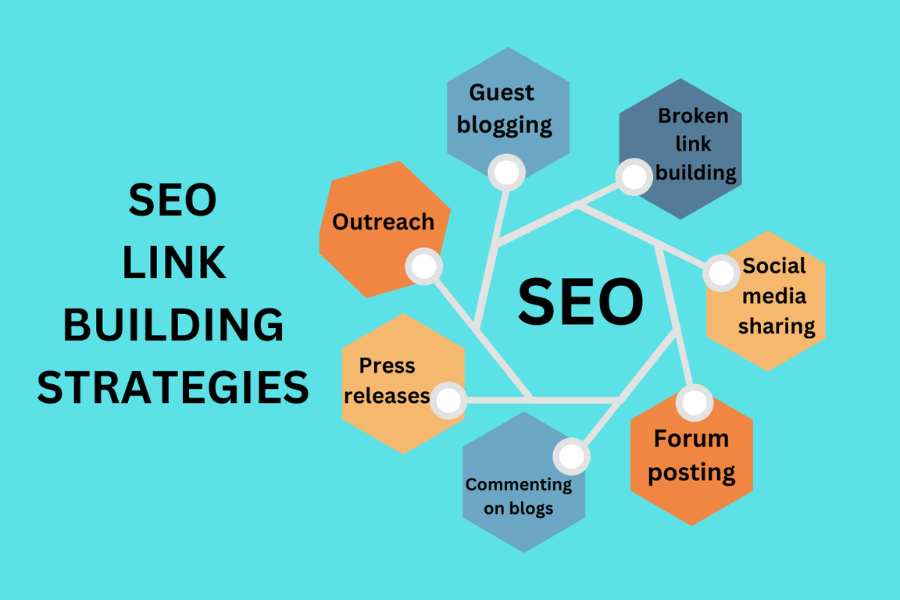Link Building Powerhouse: Strategies for SEO Success
Table of Contents
- The Importance of Link Building in SEO
- Quality Over Quantity: Earning High-Quality Links
- Content Creation and Outreach
- Building a Network of Influencers and Partners
- The Role of Guest Blogging
- Monitoring and Analyzing Backlinks
- Future Trends in Link Building
The Importance of Link Building in SEO
Link building is a crucial aspect of search engine optimization (SEO) that helps improve a website’s authority and visibility. By obtaining high-quality links from reputable websites, businesses can enhance their site’s credibility in search engines like Google. By serving as endorsements, these links tell search engines that the content is reliable, pertinent and meaningful. The more credible links a website obtains, the higher it ranks in search engine results pages (SERPs), increasing traffic and the possibility that visitors will convert to buyers.
To make the most of your SEO strategy, incorporating link-building services can streamline acquiring these valuable backlinks. Experts in this domain have the contacts and knowledge to obtain secure links from high-authority domains which can be difficult and time-consuming for firms to accomplish on their own. By utilizing these services, businesses can concentrate on producing high-quality content and delegate link-building tasks to professionals assuring more excellent results and long-term SEO success.
Quality Over Quantity: Earning High-Quality Links
Gone are the days when the sheer number of backlinks could propel a site to the top of search results. Nowadays, quality is more important than quantity. Many low-quality links are less valuable than a few high-quality connections from reputable websites. Concentrate on obtaining connections from sites pertinent to your field and content. For instance, a single backlink from a well-respected site within your niche can be far more beneficial than dozens of links from unrelated or low-authority sites.
Attributes of High-Quality Links
- Relevance: Websites in your niche should link to you. Google prioritizes contextual relevance; thus, getting a backlink from a website in your sector or a connected one will help you rank higher.
- Authority: Links from Domain Authority (DA)-high websites are preferable. Search engines often trust high DA sites and their endorsement (in the form of a backlink) can increase the perceived authority of your website.
- Natural Placement: Links should appear natural within the context of the content. Forcing links into irrelevant content can be detrimental and may even result in penalties from search engines.
Content Creation and Outreach
Creating compelling and valuable content is fundamental to earning high-quality backlinks. Unique, informative and engaging content naturally attracts links from other websites. Once you’ve made great content, the next step is proactive outreach. Making contact with relevant blogs and websites to promote your material boosts your chances of obtaining worthwhile backlinks. Providing tailored pitches that clearly explain the value of your content is crucial for successful outreach.
Types of Content That Earn Links
- Infographics: Visual content is straightforward to share. Creating infographics is an effective method for simplifying complex information into visually attractive content that can be distributed on social media and various other platforms, leading to the generation of backlinks.
- Original Research: Data-driven content attracts citations. By conducting original research and publishing your findings, you may establish yourself as an authority on your subject and encourage people to cite and link back to you.
- How-to Guides: Practical and informative guides are valuable resources. Thorough, step-by-step guides that address common pain points or answer frequently asked questions will likely attract backlinks from other websites seeking value to their audiences.
Building a Network of Influencers and Partners
Developing connections with influential people and business executives can help you create more links. These partnerships can provide opportunities for collaboration, such as co-authored articles or mentions on social media. Building a solid network requires genuine engagement and offering value to your partners. Commenting on blog posts, sharing their content, and participating in industry forums are practical ways to build these relationships.
Networking is about more than just asking for links. It’s about creating a symbiotic relationship where both parties benefit. Offer to share their content, participate in discussions and provide valuable insights to strengthen these bonds. Additionally, attending industry conferences and webinars can help you connect with key players in your niche opening more doors for collaborative opportunities.
The Role of Guest Blogging
Guest blogging remains a viable strategy for gaining high-quality backlinks. Contributing articles to respectable blogs in your field will allow you to highlight your experience and obtain important visibility. Remember to focus on sites with a solid online presence and align with your audience’s interests. Guest posts should provide genuine value to the host site’s audience, thereby increasing the likelihood of acceptance and engagement.
Creating insightful and timely content is essential for guest blogging to be effective. This not only helps in earning backlinks but also in building your personal or business brand in your industry. Tailoring your content to suit the host blog’s tone and style while adhering to their editorial guidelines can also enhance your chances of success.
Monitoring and Analyzing Backlinks
To guarantee the success of your link-building plan, you must routinely check and evaluate your backlink profile. Tools like Google Search Console and third-party SEO software can help you track and assess the impact of your backlinks. Analyzing this data allows you to adjust your approach and focus on what works best. Identifying which types of content and outreach methods yield the most successful backlinks can help you refine your strategy for better results.
Steps for Effective Monitoring
- Track the number and quality of incoming links: Monitoring regularly enables you to spot fresh chances and assess the effectiveness of your link-building activities.
- Recognize and remove any harmful or spammy links: Low-quality backlinks can harm your SEO and it’s essential to disavow these links using Google’s Disavow Tool.
- Use analytics to measure the impact of backlinks on traffic and rankings: Making data-driven judgments is possible with the help of tools like Google Analytics, which can reveal information on how backlinks impact the functionality of your website.
Future Trends in Link Building
As SEO evolves, so do link-building strategies. Emerging trends to watch include the increasing importance of domain authority and the integration of AI in SEO tools. By keeping up with these developments, you can maintain an effective link-building strategy and stay ahead of the competition.
AI and machine learning are increasingly prominent in SEO offering more sophisticated data analysis and prediction capabilities. Understanding these advancements can give you a competitive edge and streamline your link-building efforts.






